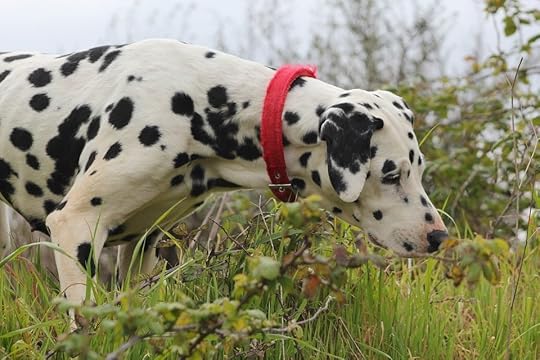5 Potential Spring Hazards for Pets
 With the warming of the earth, the shining of the sun, and the blueness of the sky, spring brings colorful flowers, green grass, and planted vegetables. This season brings great beauty …. it can also bring hazards for pets.
With the warming of the earth, the shining of the sun, and the blueness of the sky, spring brings colorful flowers, green grass, and planted vegetables. This season brings great beauty …. it can also bring hazards for pets.According to the ASPCA (American Society for the Prevention of Cruelty to Animals), there are many dangers lurking in people’s garages, yards, and gardens, perils that can harm our beloved animals. Here are a few tips to keep your pets safe this season:
Products such as paints and solvents can be toxic to pets, causing severe irritation or chemical burns. Carefully read all labels to see if the products you have on hand are safe to use around your furry friends. Also, be cautious and conscious about things like nails, staples, insulation, saws and blades, and other tools and materials.Products like fertilizers, insecticides, and herbicides which keep plants and lawns healthy and green can be dangerous if a pet ingests them. Store these items out of the way and follow labels carefully.
Many popular spring plants, like rhododendron, azaleas, and lilies, are also highly toxic to pets and can be fatal if eaten. The ASPCA provides a helpful list of plants that can be poisonous to pets. Visit the organization’s website to learn more: https://www.aspca.org/pet-care/animal-poison-control/toxic-and-non-toxic-plants.Spring cleaning the house happens during this time of year; be sure to keep all cleaners and chemicals out of your pets’ reach. Cleaning products can contain chemicals that harm pets. Read and follow label directions for proper use and storage. The ASPCA provides a listing of household products than can be poisonous to pets: https://www.aspca.org/pet-care/animal-poison-control/poisonous-household-products.Like people, pets can be allergic to foods, dust, plants, and pollens. Allergic reactions in dogs and cats causes itching, sneezing, even life-threatening anaphylactic shock to things like insect bites and stings. If you believe your pet has a springtime allergy, visit your veterinarian and consider have your pet tested to learn what causes the allergy. Also, put your pet is on year-round heartworm preventive medication as well as a flea and tick control program. Ask your vet to recommend a treatment to keep these pests at bay.
If you suspect your pet may have ingested something potentially poisonous, contact your local veterinarian or the ASPCA’s Animal Poison Control Center at (888) 426-4435.

Published on April 18, 2017 05:30
No comments have been added yet.



